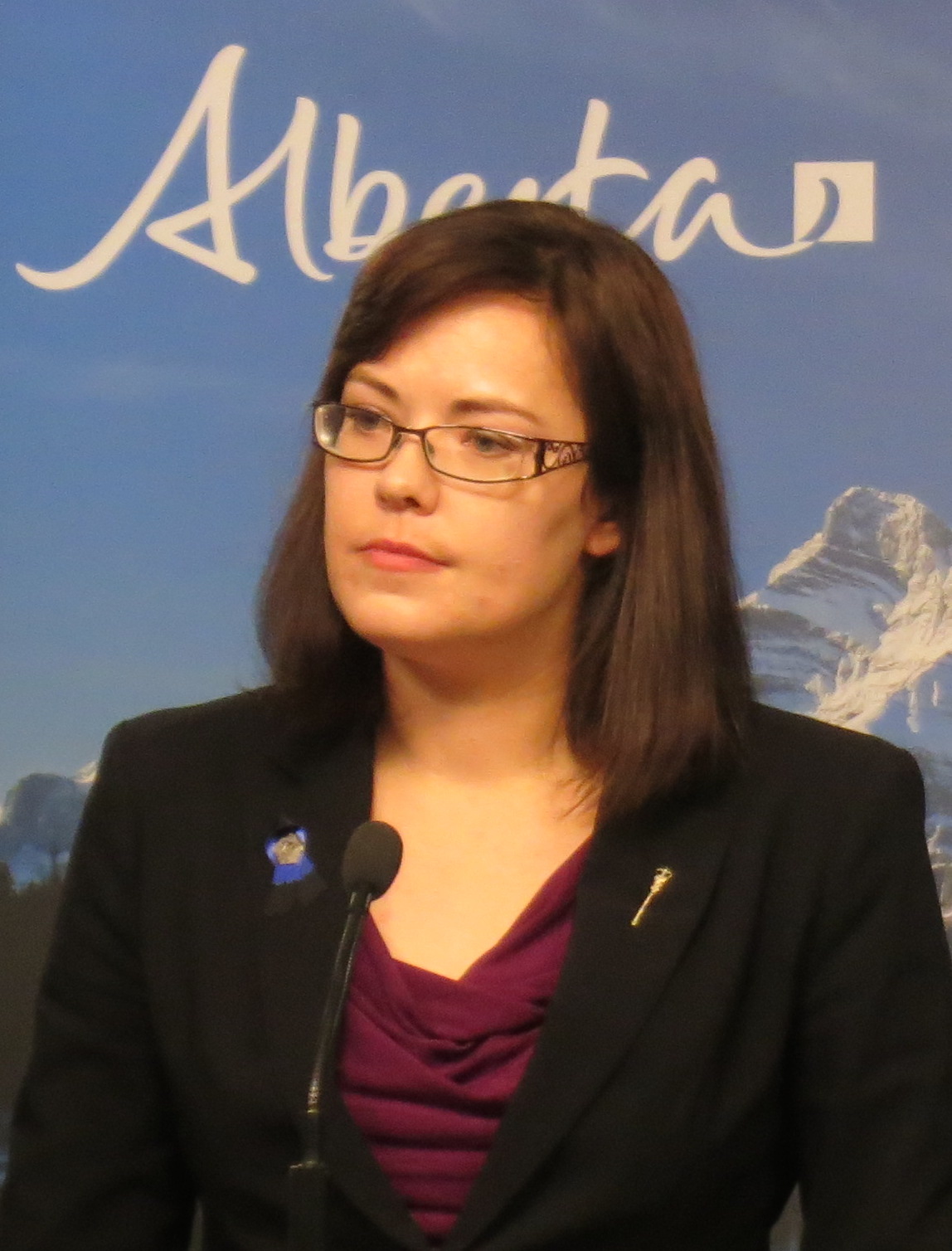With Bill 1, An Act to Renew Democracy in Alberta, there can be no question that Alberta’s NDP government is playing hardball with what’s left of the shattered Progressive Conservative Party.
At a news conference in the Legislature yesterday morning, Justice Minister Kathleen Ganley confidently trotted out the government’s talking points on why the cabinet banned corporate and union donations, why they banned them now, and why other changes will wait until later after a multi-party committee has taken a look at the whole question.
All Albertans understand the argument for a ban on corporate and union donations, even if they don’t like the idea for one reason or another: Big money from big organizations tilts the playing field in favour of some parties, and the biggest organizations with the deepest pockets are corporations.
Most Albertans seem to think it’ll be good for democracy in this province if such donations are eliminated, although in time there are sure to be U.S.-style court challenges alleging preventing legal “persons” like incorporated companies from donating to political parties restricts “freedom.” There are also bound to be legal attacks on future spending limits, along the lines of the Citizens United case that has seriously eroded democracy south of the 49th Parallel.
As for the question of why now, when more campaign finance reforms are needed and indeed planned by the NDP, Ganley smoothly made the case that the corporate and union contribution ban was a specific election promise made by Premier Rachel Notley and therefore the government felt obligated to follow through immediately.
It’s hard to argue with that, and it’s hard to believe the change won’t be very popular with most Alberta voters.
Indeed, the idea is so well liked the notion of extending it to municipal election campaigns, first suggested in the blogosphere by political commentator Dave Cournoyer, is catching on as well. Yesterday morning, Edmonton Mayor Don Iveson called in a Tweet for similar restrictions to be imposed on the municipal political arena.
Just the same, the fact Alberta’s huge, Wild West-style allowable campaign contributions remain untouched by Bill 1, and some other urgently needed fixes have also not been included, is bound to raise questions about why the Notley Government is proceeding so quickly with seemingly incomplete legislation.
At the risk of mixing metaphors, there’s little question the decision to enact the legislation immediately, especially the provision to make it retroactive to June 15, the day Bill 1 was introduced, fires a torpedo right into the side of the not-so-good ship Tory, which has been taking on water since well before the election.
The PC Party at least $1 million in debt, and possibly half that much again. There are questions about whether that money can ever be repaid. Directors of the unincorporated society that runs the party are edging toward the lifeboats with statements in hand that they will not be held responsible for debts incurred without their approval. Too much of this kind of thing could send the party straight to the bottom.
Judging from the momentary smile that flitted across Ganley’s face at yesterday morning’s presser when a reporter wondered what the hurry was all about when the PCs still had promises outstanding from corporations for donations, it seems quite likely she understands this perfectly well.
However, she smoothly explained that it’s important to Albertans that the NDP keep its promises and that the province move as quickly as possible to a level political playing field, which is in the interest of voters.
It was to Ganley’s credit that instead of laughing out loud she responded respectfully, both at the news conference and later in debate in the Legislature, to questions about PC leader Ric McIver’s allegations that by levelling the playing field the NDP is actually tilting it in its own favour.
The PCs’ real problem is that election writs last 60 days, and they presumably thought they had until after Canada Day to collect the pledges made by some of their (former?) corporate friends to help pay off their debts.
With the party now reduced to third-party status in the Legislature, no chance it will form a government any time soon, and very little chance it will form a government ever again, some of those corporations that might have followed through on their commitments may be relieved they will be prevented by law from doing so.
There is now absolutely no way a desperate, last-minute pledge drive can be legally launched by the foundering former governing party.
This leaves the Tories — and especially the party’s directors, who may be on the hook for the debt without a shred of corporate protection — in a bad, bad spot, or at least depending on the mercy of the party’s creditors.
This post also appears on David Climenhaga’s blog, AlbertaPolitics.ca.




